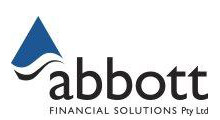During the past couple of years property investors have been less active as interest rate rises began eating into their profits. However, as 2024 begins, it’s clear more investors are returning to the real estate market.
According to the ABS lending indicators report for October, new loan commitments for investors increased by 5% in one month, up 12.1% over the year.i

As market conditions slowly improve, vacancy rates remain extremely tight, and interest rates tipped to fall later this year, some savvy individuals are jumping back in before a new investor wave rolls around. However, before diving straight in there are some simple steps needed to test the waters first.
Before launching into a real estate investment, whether it’s your first or the next in your portfolio, be sure to figure out your property purpose. Are you seeking long-term capital growth or an immediate cash flow? Understanding your goals will help shape a successful investment strategy and will help guide your decision-making.
Capital growth versus positive cash flow
If it’s a steady passive income you’re after, a property with positive cash flow may be the right path. On the other hand, if you’re focused on long-term wealth accumulation, an investment with the possibility for substantial capital growth could be more suitable. The two don’t have to be mutually exclusive either, it can be possible to have both at the same time.
Deciding which strategy would work best for your personal financial circumstances is crucial and planning should start well before the house hunting does. By creating a detailed budget, you can ensure your investment aligns with any future income expectations. Crunch the numbers to find out what the personal pros and cons could be for either strategy.
Those investors prioritising capital growth may need to accept a negative cash flow in the short term with the expectation of substantial profits one day upon resale. Those taking the direction of positive cash flow may have to ride with rental market fluctuations and be prepared to pay income tax on their earnings.
Understand the positive versus the negative
Positive gearing occurs when rental income exceeds expenses, resulting in a profitable cash flow that is taxable income. On the flip side, negative gearing is when expenses such as home loan interest, maintenance, and council rates exceed any rental income leading to a tax deduction.
Setting up your investment to fit either scenario should be part of your forward planning. Understanding the ‘for’ and ‘against’ of each option is vital when deciding how to structure your investment portfolio. Therefore, it makes great financial sense to seek the advice of a professional who can provide valuable insights tailored to your specific situation.
Get to know the risks
Every investor has a different level of risk tolerance. It’s essential to assess your comfort level with certain financial risks before investing in real estate. Consider factors such as market volatility, rental vacancies – and the most recent challenge of interest rate fluctuations. Anyone with a low risk tolerance may want to lean towards those investments with a lower risk profile possibly meaning smaller returns but greater stability. Alternatively, if you’re comfortable with more risk, then explore properties with the potential for higher returns.
Do the homework on values and hidden costs
Thoroughly research the rental market in your desired location to estimate sale prices and the potential rental income. Then research where you believe local property prices and demand (by both tenants and future buyers) are headed so you’ll be able to get an idea of long-term capital growth.
Additionally, determine what your mortgage repayments will be while working in a buffer for any more interest rate movements and periods when the property could be sitting vacant. Carefully consider letting and property management fees, any strata costs, insurances, council rates, maintenance expenses, renovation budgets, as well as any other potential ongoing charges.
If you feel you’re ready to take the next step towards property investing, seek professional advice from your mortgage broker today.
i https://www.abs.gov.au/statistics/economy/finance/lending-indicators/latest-release
Important: This provides general information and hasn’t taken your circumstances into account. It’s important to consider your particular circumstances before deciding what’s right for you. Although the information is from sources considered reliable, we do not guarantee that it is accurate or complete. You should not rely upon it and should seek qualified advice before making any investment decision. Except where liability under any statute cannot be excluded, we do not accept any liability (whether under contract, tort or otherwise) for any resulting loss or damage of the reader or any other person.
Any information provided by the author detailed above is separate and external to our business and our Licensee. Neither our business nor our Licensee takes any responsibility for any action or any service provided by the author. Any links have been provided with permission for information purposes only and will take you to external websites, which are not connected to our company in any way. Note: Our company does not endorse and is not responsible for the accuracy of the contents/information contained within the linked site(s) accessible from this page.


